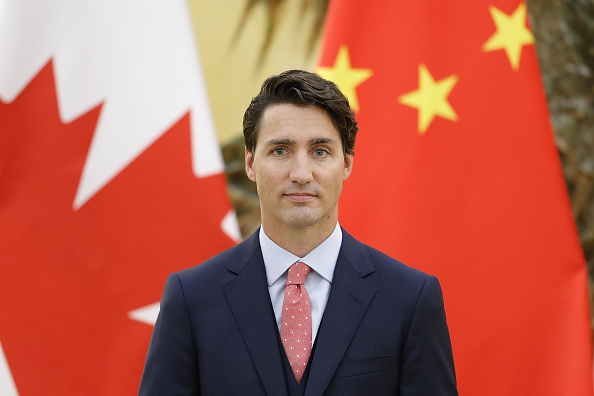The decision to block the takeover of a Canadian construction group by a Chinese state-owned company on national security grounds represents a “test case” for how the government will approach deals involving critical infrastructure in the future, experts say.

On Wednesday, the federal government announced it would not allow the proposed sale of Aecon Group Inc. to CCCC International Holding Ltd.
READ MORE: Ottawa blocks Chinese takeover of Aecon Group Inc for ‘national security’ reasons
That move came after the government bowed to opposition pressure earlier this year and agreed to conduct a national security review of the deal, which had initially only been slated to receive a standard investment review, and sets the stage for tougher review of similar bids in the future.
“The Aecon case was a real test case that forced the government to think really seriously about what is the significance of critical infrastructure in Canada,” said Wesley Wark, a national security expert leading the Security and Policy Institute at the University of Ottawa.
READ MORE: U.K. to tighten foreign investment reviews
Wark said the government has essentially built fences aimed at limiting foreign takeovers of sensitive technology and the oilsands.
With the decision to block the Aecon takeover, Wark said the government now seems willing to extend those tougher considerations to critical infrastructure as well and potentially get more in line with allies like the U.K., the U.S., and the European Union, which have all taken measures to crack down on takeovers by Chinese state-owned companies in recent years.
WATCH BELOW: MPs raise red flag over sale of Aecon to Chinese-owned company

But from a government that has made courting China a priority, the move came as something of a shock.
“I must say that I was a bit surprised,” said Guy Saint-Jacques, former Canadian ambassador to China.
Saint-Jacques, who served as ambassador from 2012 to 2016, said he had anticipated the government would approve the deal with conditions limiting, for example, what sectors the company would have been allowed to invest in if it had gone through.
Now though, he said the decision to block the deal means the government will have to take a hard look at how it will apply the criteria used in the decision to future deals involving critical infrastructure — and explain those clearly to trade partners.
WATCH BELOW: How potential changes in foreign investment rules might impact Alberta

Saint-Jacques was an ambassador when the former Stephen Harper government both approved the takeover of Nexen in 2012 and announced new restrictions preventing any further foreign firms from acquiring controlling stakes in the oilsands.
Smoothing out the resulting wrinkles in the Sino-Canadian relationship took time and similar efforts will likely be required now, he suggested.
READ MORE: Trudeau government warned to be careful before approving Chinese takeover bid for Aecon construction
“The perception in China was that Canada did not welcome any investment by state-owned enterprises and we had to work hard to correct that,” said Saint-Jacques, noting the decision will likely be accepted with some explanations.
- What is a halal mortgage? How interest-free home financing works in Canada
- Capital gains changes are ‘really fair,’ Freeland says, as doctors cry foul
- Budget 2024 failed to spark ‘political reboot’ for Liberals, polling suggests
- Peel police chief met Sri Lankan officer a court says ‘participated’ in torture
“What is required now is an effort by the federal government to explain a bit more to the Chinese side why they made this decision and I think they will understand because they have sectors too where foreign companies are not allowed to invest.”
The question of how much Chinese investment to accept is one Canadians and officials will have to continue to grapple with over the coming years, especially as the government continues exploratory talks over whether to pursue a free-trade agreement.
China is pursuing an aggressive strategy of global investment known as the One Belt, One Road campaign but has been met with growing suspicion over concerns it plans to use growing influence to guide other political agendas towards its interests.
Those concerns, Wark noted, could mean the government will be forced to take a harder look at similar deals in the future and look at how other jurisdictions are taking action to limit the risks of Chinese foreign investment.
“I think the Canadian government is understanding although we have a regulatory process, we haven’t tested it much — there are good models to draw on,” he said.
“There has to be a level of concern about Chinese state-owned companies in the broader context of global economic expansionism.”




Comments